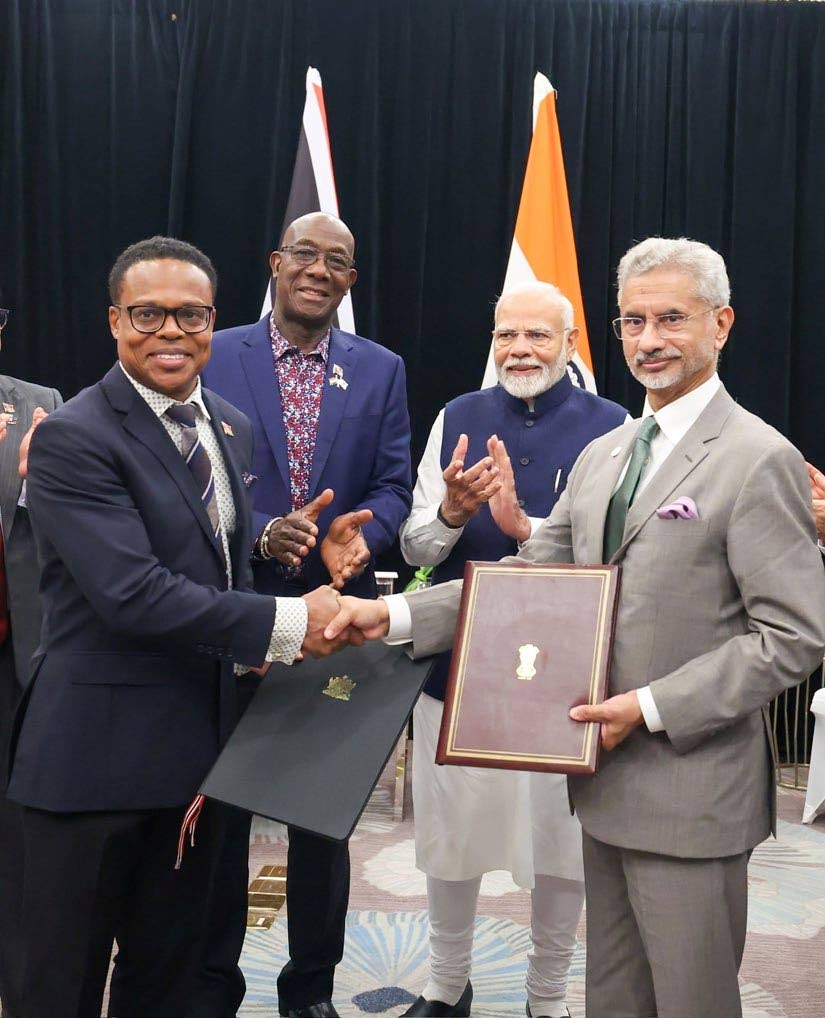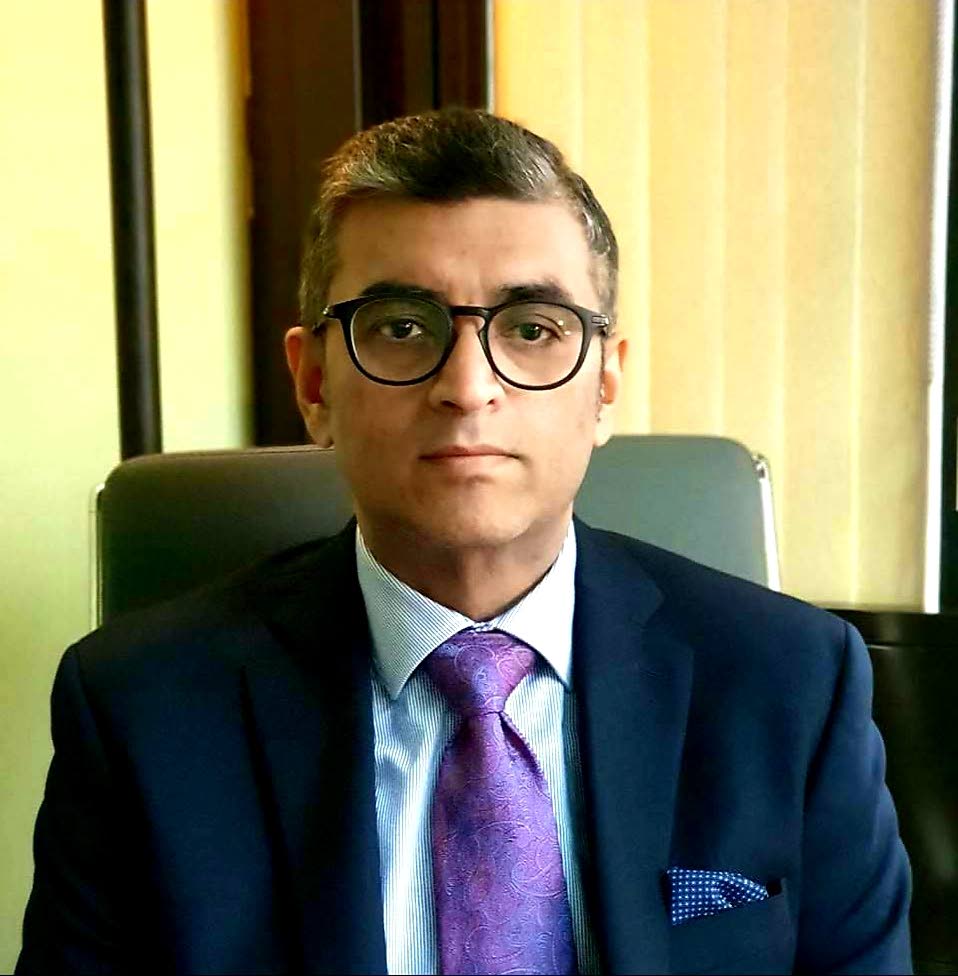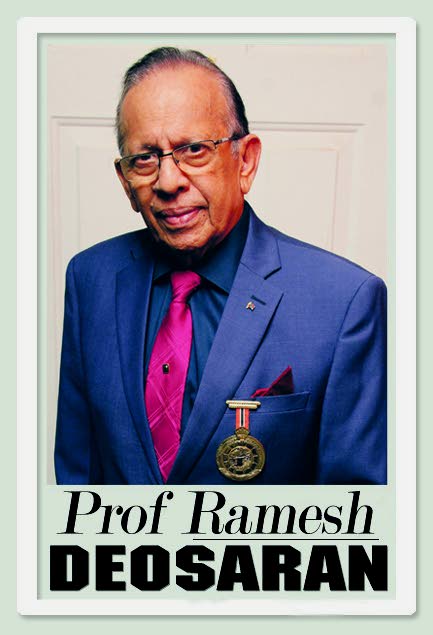Layers of diplomacy
Written by marinasb on November 3, 2024

Trinidad and Tobago is seldom mentioned, whatever the reason, in the world’s leading non-English newspapers. Yet last week we appeared in none other than El País, Spain’s equivalent of Le Monde (France), the Times (UK), the Washington Post (US), Corriere della Sera (Italy) and Germany’s Frankfurter Allgemeine Zeitung.
It was a totally by-the-way mention, but the subject was of interest to any reader of international affairs and to this reader, who recognised the image of the person whose appointment as ambassador to Argentina framed the report.
The article was essentially about the political pragmatism of diplomacy, as evidenced by the mending of a serious rift between Argentina and Spain. The diplomatic falling-out in May of this year was widely covered by the world media, which cannot resist proving the unruly nature of the new-ish, far-right, populist Argentinian president Javier Milei. His possible presidency in last December’s elections was feared as much as Donald Trump’s possible second term in office.
President Milei, caring nothing about consequences, called the wife of Spain’s president Pedro Sanchez “corrupt” during a rally in Spain of its popular ultra right-wing party Vox. President Sanchez demanded an apology. Milei refused.
Rather, Milei repeated the insult, and Spain withdrew its ambassador from Buenos Aires to “defend the dignity and sovereignty of Spanish institutions.” For the last five months there has been no Spanish ambassador in the important South American capital.
But there is realpolitik to consider, even without apologies, and the announcement last week that “Spain and Argentina are committed to strengthening ties” and Joaquín María de Arístegui Laborde is going to Buenos Aires as ambassador are clear evidence of the foreign ministries of both countries being able to reach a necessary compromise before the two presidents, whose countries are longtime allies, meet at two international summits this month.
Working in the background to achieve a necessary goal is something most of us do unthinkingly. Between countries it is called diplomacy. Essentially it is finding ways to ensure that relationships are mutually rewarding.
El País reports that while the spat between Milei and Sanchez continued, corridor diplomacy was taking place between Foreign Ministry officials, so that Spain facilitated the evacuation of Argentinians from Beirut along with Spanish citizens fleeing Israeli bombardments, and Argentina supported the 2026 Iberoamerican summit being held in Spain.
As an aside, President Milei sacked his obviously very able Foreign Minister last week for voting for lifting the US embargo on Cuba.
Joaquín Arístegui de Laborde might be remembered as a former Spanish ambassador to TT and Caricom. Unforgettably, he named his residence in St Clair “Villa Chacon” after Spain’s last governor to Trinidad, José Maria Chacón, from whom Britain seized Trinidad in 1797.
He also had an interest in cultural matters, valuing the arts as a conduit for understanding between people and an aid to diplomacy, as much as language and trade are. The Bocas Lit Fest had just been inaugurated (2010) and he was keen to support efforts to use literature as a way of establishing closer cultural ties with the Spanish-speaking world to eventually develop trade with its vast book-publishing sector.
Subsequent ambassadors have collaborated with the Bocas Lit Fest in that goal, and on October 15 a further, active step was taken in Madrid – an evening of showcasing new, prize-winning Caribbean literature to a completely new audience. It was funded by British donors who support the promotion of Caribbean writing internationally and made possible through the Spanish embassy in Port of Spain and the last ambassador, Fernando Nogales Alvarez, interceding with the Casa de América in the Spanish capital.
Casa de América is an institution dedicated to relations between Spain and Latin America and the Caribbean. Funded partly by the Spanish government and the Municipality of Madrid, it offers an impressive, eclectic programme of culture and transatlantic Spanish dialogue.
Antigua’s ambassador to the US and OAS, Sir Ronald Sanders, wrote recently in the press of the Caribbean’s huge disadvantage in being an appendage to Latin America. He expressed concern over the paucity of specific data on the Caribbean presented in international forums and the lack of analysis of our sub-region, resulting in organisations such as the World Bank not addressing “the real challenges of promoting equity and growth in the Caribbean.” It is an important consideration.
Furthermore, the linkage has hindered meaningful cultural ties between us and the Spanish-speaking world. The English-speaking Caribbean remains largely a cultural wasteland to Latin America and Spain.
The Bocas event, featuring six writers of prose and poetry, created a sense of real discovery among the audience, which included an unrecognised English-speaking Caribbean community, and the publishing professionals we connected with in Madrid.
Their knowledge of our literature starts and ends with the deceased Naipaul and Walcott, but contemporary Caribbean writers have been winning prestigious prizes over the last decade. That world-class literature has been translated into about 20 different languages, but almost none into Spanish.
With deepening cultural connections and money to be made, that scenario will not endure. Cultural diplomacy demands patience, but has its strengths.
The post Layers of diplomacy appeared first on Trinidad and Tobago Newsday.




